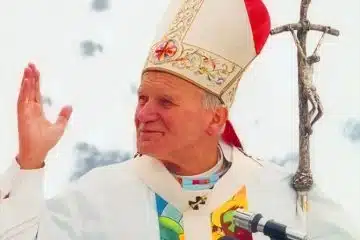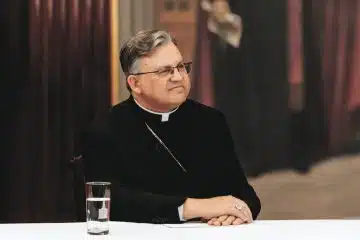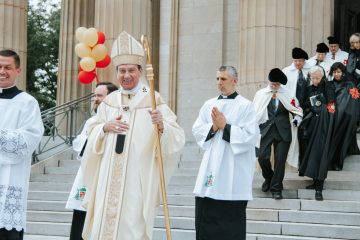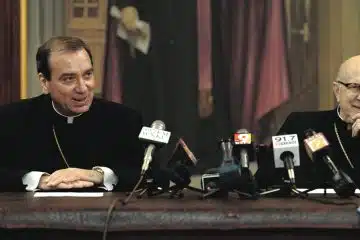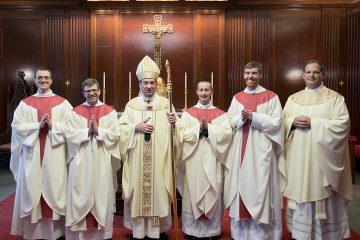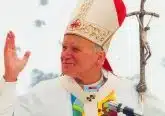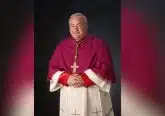Synod groups on sexuality: Church welcomes all, calls all to conversion
By Cindy Wooden
VATICAN CITY (CNS) — No one is excluded from the love of God or from being welcomed into the Catholic Church, but God’s love and the church’s welcome also come with a call to conversion, said the English-language groups at the Synod of Bishops.
Young people need to know “the church’s beautiful, yet challenging, vision, teaching and anthropology of the body, sexuality, love and life, marriage and chastity,” said the English-A group.
“At the same time, we restate the church’s opposition to discrimination against any person or group, and her insistence that God loves every young person, and so does the church,” the group said in its report.
The reports, published by the Vatican Oct. 20, were the result of reflections in the small groups — divided by language — on the final chapter of the synod working document, which dealt with “pastoral and missionary conversion.”
Most of the 14 working groups called for further local and national dialogue with young people on what they need from the Catholic Church and what they can offer the church. Most also called for a greater involvement of women in the life of the church, including in the training of priests, and many acknowledged how the sexual abuse scandal undermines the church’s credibility.
None of the synod groups in any language used the term “LGBT,” but many of them did refer to a need to help young people who struggle with church teaching on sexuality or, more explicitly, those who experience “same-sex attraction.”
The English-B group said that it “discussed the issue of Catholics who experience same-sex attraction or gender dysphoria,” which refers to believing one’s biological sex does not correspond to his or her true identity.
The group asked that the synod’s final document include “a separate section for this issue and that the main objective of this be the pastoral accompaniment of these people which follows the lines of the relevant section of the Catechism of the Catholic Church.” The catechism teaches that homosexual activity is sinful, but that homosexual people must be respected and welcomed.
The English-D group said it, too, “spent a good deal of time reflecting on the motif of the church’s stance of welcome and inclusivity. We fully and enthusiastically acknowledge that the church of Jesus Christ reaches out in love to absolutely everyone.”
“No one, on account of gender, lifestyle or sexual orientation, should ever be made to feel unloved, uncared for,” the group said. “However, as St. Thomas Aquinas specifies, love means ‘willing the good of the other.’ And this is why authentic love by no means excludes the call to conversion, to change of life.”
The group also echoed a sentiment shared by other groups that through the synod, the speeches and the contributions of the young adults present “it became eminently clear that young people crave holiness of life and desire practical training that will help them walk the path of sanctity.”
The English-C group, like many others, noted that while the synod can provide general suggestions for listening to young people and involving them in the life of the church, individual parishes and dioceses will need to find specific ways to put those suggestions into practice.
“We suggest that episcopal conferences be strongly invited to take up the results of the synod and engage in a similar process of reflection in their own milieus, even including non-bishops in the deliberations, as this synod has done,” the group said.
– – –
Copyright © 2018 Catholic News Service/U.S. Conference of Catholic Bishops. www.catholicnews.com. All rights reserved. Republishing or redistributing of CNS content, including by framing or similar means without prior permission, is prohibited. You may link to stories on our public site. This copy is for your personal, non-commercial use only. To request permission for republishing or redistributing of CNS content, please contact permissions at [email protected].




